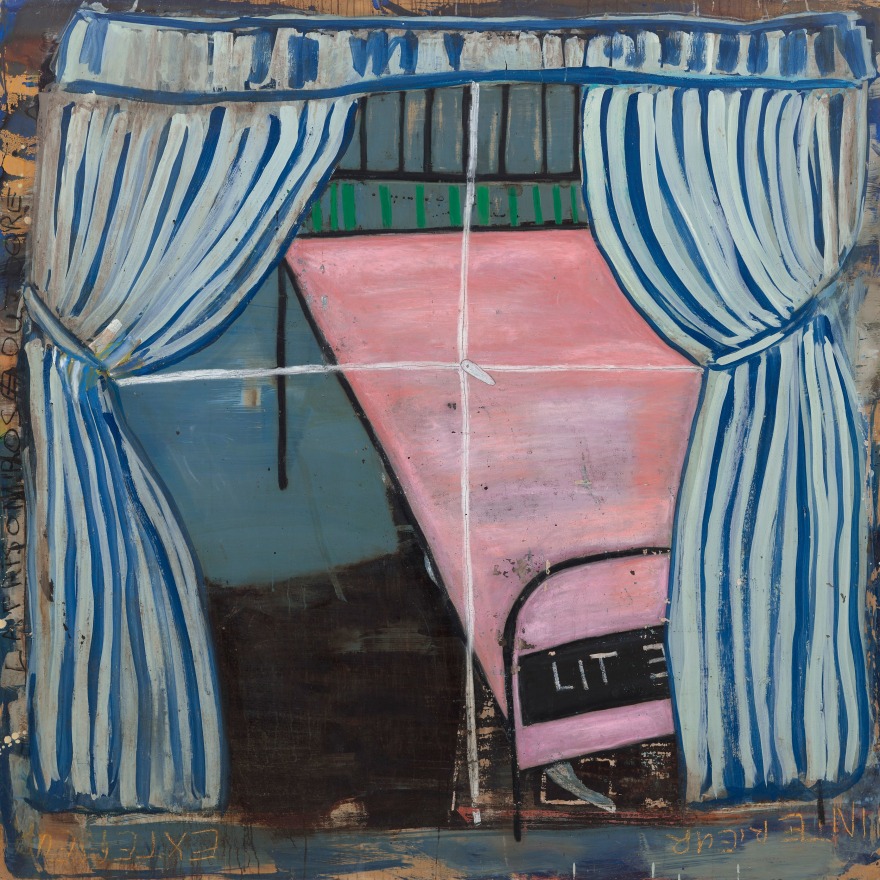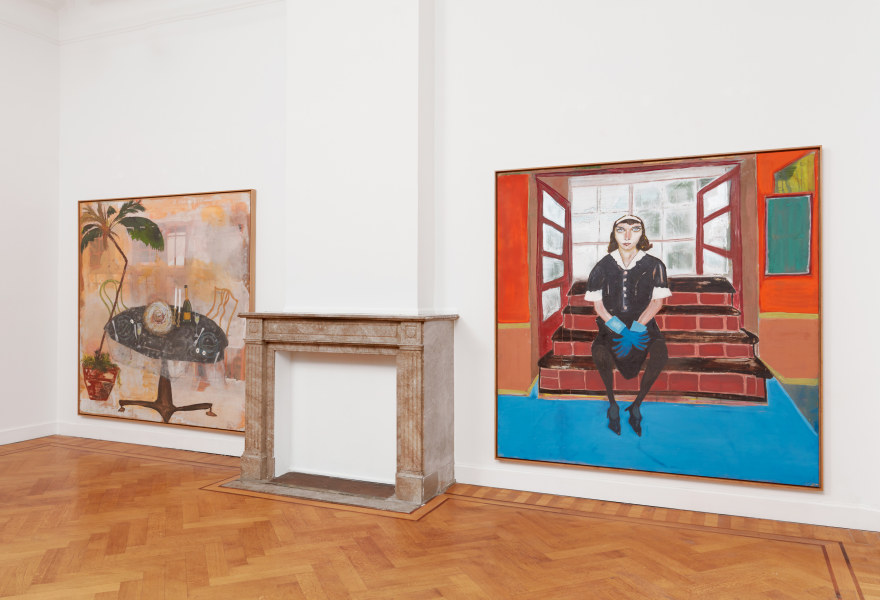30 april 2024, Yves Joris
Colourful memories in the life journey of Aïcha Khorchid on canvas
The mind works in mysterious ways. It's been almost 30 years since Algerian singer Khaled released his love song about Aïcha. Undoubtedly, his heart belonged to another, for Aïcha Khorchid was only 15 at the time. She has now grown into an artist who is currently participating in the group exhibition The Beauty of Diversity at the Albertina Modern Museum in Vienna. For those who would like to admire the artist's work in serene surroundings, there is no need not travel far because the exhibition Le Monde d'Aïcha is currently on view at the GNYP Gallery in Antwerp.
Aïcha's life has not been without its challenges. She was born in Karachi, Pakistan, in 1991. A few days after her birth, her family arrived in Paris as political refugees after travelling through war-torn Lebanon. These were tough years that eventually led to placement with a host family. Aïcha did not get along well with Michel and his wife Chantelle's three children. After a profound personal transformation, she began a successful painting career in 2020. Her life forms an important element of the body of work of this artist, who has now found peace on green Mallorca. Is it possible to interweave music and imagery? This text is a bold attempt to merge song lyrics and an artist.

Aïcha Khorchid, Le Monde d'Aïcha, GNYP Gallery
As if I didn't exist
Aïcha's work is infused with the lyricism of Khaled's song, in which the words resonate with the depth of her own experiences. "Comme si je n’existais pas, elle est passée à côté de moi" sings the Algerian singer and we immediately see how Aïcha's figures pass by the viewer, each with its own story yet connected by a common thread of humanity. Khorchid's work is ambiguous. One moment, eyes stare mercilessly, while in other works, human presence is completely erased, with only an abandoned car or bed reminding us of human absence.
Born in the bustling streets of Karachi, Aïcha grew up in a world of contrasts. Her early life was marked by hardship, but also by an untameable spirit that drove her towards art. "Sans un regard, reine de Saba" as the song lyrics go, and she seems to pass by superficial glances, seeking a deeper connection through her art that will liberate her from her fate. The exhibition is therefore a labyrinth of emotions in which each painting reveals a different facet of her soul. "Voici les perles, les bijoux, aussi l’or autour de ton cou." And we see how Aïcha's use of colour and texture reflect this inner richness. The vibrant hues in her work are not only visually stunning but also symbolise the precious moments of her life, like pearls of wisdom gathered along her journey.

Aïcha Khorchid, La Prison Rose ou Dorée, 2021, GNYP Gallery
Her portraits are powerful and moving, with eyes that seem to speak of a life full of stories. "Les fruits bien mûrs au goût de miel, ma vie Aïcha si tu m’aimes" and indeed, her work calls for love, not only for the artist but for art itself. It is an invitation to look beyond the surface, to taste the sweetness and ripeness of her artistic expression regardless of formal training. Aïcha did not pursue artistic studies, has no schooling in perspective or anatomy and had to navigate herself through the effects of light and shadow. In this sense, she is following in the footsteps of Henri Rousseau (France) and Niko Pirosmani (Georgia), two artists mentioned in Klaus Albrecht Schröder's foreword. The monumental floral work (Aïcha usually works on a scale of 2 x 2 meters) on the ground floor of the gallery cannot deny the artistic connection to Rousseau.

Aïcha Khorchid, Le Monde d'Aïcha, GNYP Gallery
Losing oneself in the world
In Le Monde d’Aïcha the universal and personal boundaries of the world become blurred. It is a world in which Aïcha's personal history speaks a universal language, one in which her struggles and passions resonate with us all. Her work is a reminder that regardless of our background or journey, we all strive for love, respect and beauty in our lives. The exhibition at GNYP Gallery is not only a celebration of Aïcha Khorchid's artistic talent, but also a tribute to her life journey. It is an invitation to all of us to participate in her world, a world that, like Khaled's song lyrics, speaks of love, beauty and the eternal quest for meaning. "Aïcha, Aïcha, écoute-moi, Aïcha, Aïcha, t’en vas pas." And indeed, we do not want to leave. We want to stay, to lose ourselves in Aïcha's world and perhaps find a bit more of ourselves in this process.

Aïcha Khorchid, Le Monde d'Aïcha, GNYP Gallery
